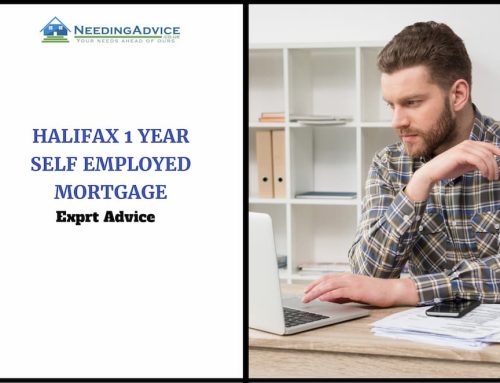If you’re a self-employed person—whether a sole trader, freelancer, or limited company director—accessing finance can sometimes feel like navigating a maze. One of the most viable options for those with variable income or bad credit is a secured loan. In this guide, we’ll break down everything you need to know about secured loans for self-employed people in the UK, from eligibility and documentation to improving your chances of approval.
The article is updated as of April. 7 2025
Risk Warnings:
The Financial Conduct Authority do not regulate commercial mortgages.
Commercial Mortgages by referral only.
Bridging loans are available through referral only.
Secured Loans vs Unsecured Loans for the Self-Employed
| Feature | Secured Loans | Unsecured Loans |
|---|---|---|
| Collateral Required | Yes (e.g. property) | No |
| Loan Amounts | Higher | Lower |
| Interest Rates | Lower (typically) | Higher |
| Credit History Impact | More forgiving | Stricter |
| Risk | Asset at risk | No asset risk |
What Are Secured Loans?
Secured loans, also known as homeowner loans or asset-based loans, are loans that are secured against a valuable asset, usually your property. This reduces the risk for lenders and allows you to borrow larger amounts or access more affordable borrowing options compared to unsecured loans.
In return for offering your home or another asset as security, you may get:
- Lower interest rates
- Longer repayment terms
- Access to loan amounts up to £350,000 or more, depending on your financial circumstances
However, it’s crucial to remember that failure to make repayments can result in the risk of repossession.
Why Do Self-Employed People Face Borrowing Challenges?
Self-employed individuals often face stricter criteria when applying for finance due to:
- Irregular income or seasonal cash flow
- Limited proof of income
- Complex business finances
- A short trading history
- Issues with credit reports or a poor credit history
Traditional personal loans and credit cards rely on regular monthly income, which may not be easy to prove when you’re self-employed. Lenders often require additional documentation to assess your creditworthiness and affordability.
Types of Secured Loans Available to the Self-Employed
There’s a wide range of secured loans available depending on your needs:
1. Self-Employed Secured Loans
Specifically tailored for freelancers, contractors, and business owners. Offered by specialist lenders and credit brokers like Loanable’s self-employed secured loans.
2. Homeowner Loans
Ideal for those with equityThe difference between the value of the property and the amo... in their property, including self-employed homeowners.
3. Debt Consolidation Loans
Used to combine multiple unsecured debts into a single monthly payment. Helpful for managing credit card balances and existing loan repayments.
4. Commercial Mortgages
Designed for business use, particularly if you own or plan to buy a commercial property.
5. Bridge Loans
Short-term funding options useful during cash flow issues or property transitions.
Documents Required for Self-Employed Secured Loans
Lenders assess your financial history and ability to repay based on various documents, including:
- Bank statements (typically last 3–6 months)
- SA302 form and tax return documents
- Company Accounts and management accounts
- Business accounts certified by an accountant
- Proof of income, including rental income or business income
- Annual income summaries
- Credit file and credit reports
Having these ready can speed up your application process and improve your chances of approval.
Eligibility Criteria for Secured Loans
While each type of loan may have specific acceptance criteria, you typically need to meet the following:
- Be a UK resident over 18
- Own a property or have a valuable asset
- Provide evidence of regular income or stable income
- Submit detailed business details and financial documents
- Have an acceptable credit rating or explanation for adverse credit
Some Responsible lenders accept applicants with bad credit or those not listed on the electoral roll, especially if other affordability checks are met.
Can You Get a Secured Loan with Poor Credit?
Yes. A number of specialist lenders offer secured loans for people with a poor credit score or bad credit history.
These lenders assess:
- Your current business performance
- Affordability requirements
- Value of your secured asset
- Any county court judgements (CCJs)
For more, read our guide on bad credit loans.
Improving Your Chances of Approval
To boost your chances of securing a loan:
Keep Your Financial Records in Order
Submit up-to-date business statements, annual accounts, and income claims.
Improve Your Credit Score
Pay bills on time, reduce credit utilisation ratio, and check your credit profiles.
Reduce Outstanding Debt
Consolidate using a debt consolidationConsolidating multiple debts into one loan, often using the ... loan or settle high-interest credit card balances.
Show Strong Business Performance
Share your limited company accounts or sole trader income growth.
Work with a Specialist Broker
Key Factors to Consider Before Applying
- Loan amount needed and your repayment term
- Your ability to meet monthly repayments
- Total loan costs, including broker fees and repayment charges
- Risk of legal action or action for repossession
- Lender’s approach to lending and credit record requirements
Always use qualified advisors or a financial advisor for informed lending decisions.
Final Thoughts
Whether you’re looking to expand your business, consolidate debt, or manage cash flow, secured loans can offer a viable path to finance for self-employed individuals. With the right preparation—solid financial documents, a clean credit profile, and support from a broker—you can improve your borrowing potential and get access to affordable rates and flexible repayment terms.
For more advice tailored to self-employed borrowers, explore our pages on:
- Self-Employed Mortgages
- Bad Credit Loans
- Loans for Business Purposes








Leave A Comment